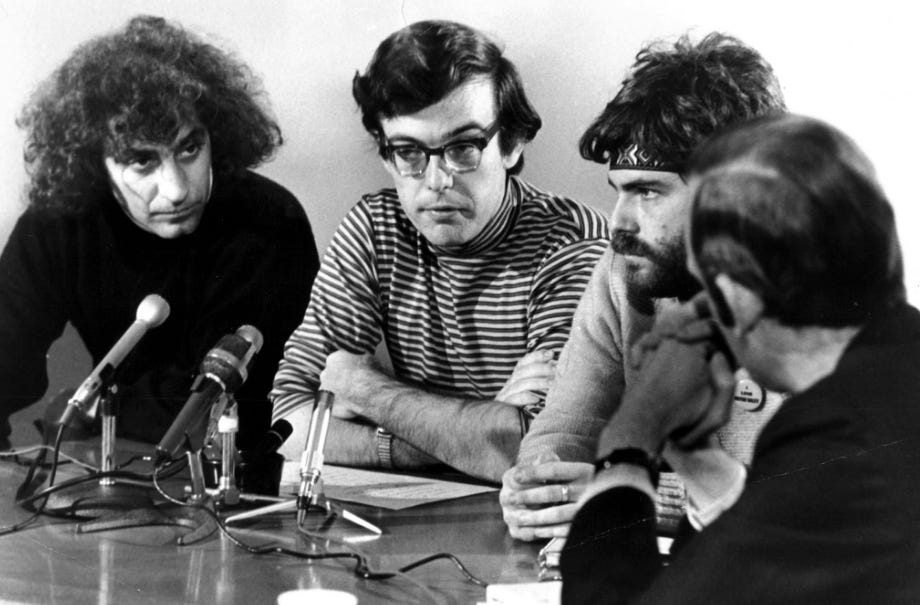Rennie Davis
Rennie Davis was a prominent American activist known for his involvement in the anti-war and civil rights movements during the 1960s and 1970s.
Rennie Davis’s life and activism were marked by dedication to nonviolent protest, social justice, and a commitment to challenging the status quo. Here is a detailed history of activist Rennie Davis:
Early Life and Education:
1. Birth and Family Background: Rennie Davis was born on May 23, 1941, in Lansing, Michigan. He came from a middle-class family and grew up in the Midwest.
2. Educational Background: Davis attended the University of Michigan, where he studied mathematics and economics. It was during his time at the university that he became increasingly politically active, influenced by the turbulent social and political climate of the 1960s.
Anti-War Activism:
3. Involvement in the Students for a Democratic Society (SDS): Davis joined the Students for a Democratic Society (SDS) in the early 1960s, a left-wing student organization known for its activism against the Vietnam War and promotion of civil rights.
4. Chicago Seven Trial: One of the most significant events in Davis's activist career was his role in the Chicago Seven trial. In 1968, he, along with other prominent activists like Abbie Hoffman and Tom Hayden, was charged with conspiracy and incitement to riot during the chaotic protests at the 1968 Democratic National Convention in Chicago. The trial attracted widespread attention and became a symbol of the anti-establishment movement.
5. Anti-Vietnam War Protests: Davis was a key organizer of various anti-war protests and demonstrations during the Vietnam War era. He advocated for nonviolent resistance and participated in efforts to mobilize millions of Americans against the war.
Post-Activism Career and Transformation:
6. Post-Vietnam War Era: After the end of the Vietnam War, Davis, like many activists of his generation, shifted his focus towards personal and spiritual development. He explored various spiritual and philosophical paths, including yoga, meditation, and Eastern philosophy.
7. Transformation and Advocacy: Davis underwent a personal transformation, embracing a more spiritual and inward-focused life. He became an advocate for meditation and mindfulness, promoting these practices as tools for personal and societal change.
Later Life and Legacy:
8. Family Life: Rennie Davis married Kirsten Liegmann in 1973, and they had two children together. His personal life reflected his commitment to inner peace and personal growth.
9. Continued Activism: While his public activism waned, Davis remained engaged in various social and environmental causes throughout his life. He continued to advocate for peace and nonviolence as well as environmental sustainability.
10. Passing: Rennie Davis passed away on February 2, 2021, at the age of 79. His life is remembered for his dedication to nonviolent activism, his involvement in the anti-war and civil rights movements, and his later focus on personal transformation and spirituality.
Rennie Davis's journey from a politically active student to a prominent anti-war activist and later, a spiritual advocate, reflects the broader transformations and complexities of the 1960s generation. He left a lasting legacy of activism, advocacy for peace, and the pursuit of personal and societal change through nonviolent means.

